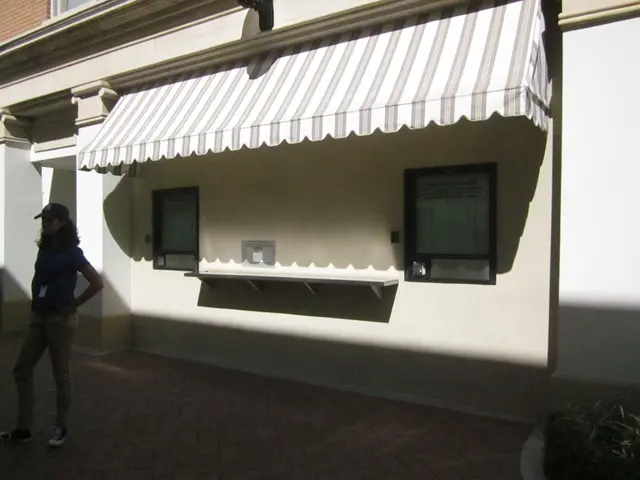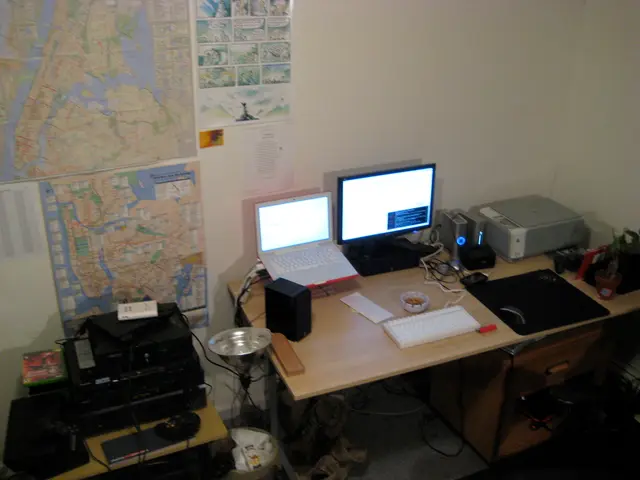- By Daniel Bakir
- and Lennard Worobic
- 🔗
The Entirety of the New Federal Cabinet Shares a Resemblance to Merz - Here's a visual rundown of the ministers composing the new Federal Government: [Images of the ministers]
The Union, with the potential future Federal Chancellor Friedrich Merz, unveiled its cabinet list on April 28, followed by the Social Democrats on May 5. The Christian Democrats presented a slate of five women and seven men (including state ministers) for the Federal Government. The Social Democrats nominated three men and four women.
Many appointments were foreseeable or leaked prior — but some were unexpected. Here's a photo gallery featuring all the ministers of the new federal government.
The Faces of the Merz Cabinet:
- Finance and Vice-Chancellor: Lars Klingbeil (SPD)
- Defense: Boris Pistorius (SPD)
- Labor and Social Affairs: Barbara Bas (SPD)
- Construction and Housing: Verena Hubertz (SPD)
- Development Aid: Reem Alabali-Radovan (SPD)
- Environment: Carsten Schneider (SPD)
- Justice: Stefanie Hubig (SPD)
- Chancellery: Thorsten Frei (CDU)
- Interior: Alexander Dobrindt (CSU)
- Economy and Energy: Katherina Reiche (CDU)
- Foreign Office: Johann Wadephul (CDU)
- Research and Space: Dorothee Baer (CSU)
- Education and Family: Karin Prien (CDU)
- Health: Nina Warken (CDU)
- Transport: Patrick Schnieder (CDU)
- Digitalization and State Modernization: Karsten Wildberger (independent)
- Agriculture: Alois Rainer (CSU)
- State Minister for Sport and Volunteering: Christiane Schenderlein (CDU)
- State Minister for Culture and Media: Wolfram Weimer (independent)
Minister Profiles Worth a Read:
- Thorsten Frei: The Counterpart of Friedrich Merz
- Katherina Reiche: The Minister of Economics: A Hint of Habeck, Surprisingly Enough
- The Newly Appointed Foreign Minister - Who is Johann Wadephul?
- Alexander Dobrindt: Merz's Hemisphere
- The First Jewish Federal Minister - Karin Prien Switches to Berlin
- Karsten Wildberger: Finally, A Top Manager to Digitalize Germany
- This is Dorothee Baer, Söder's Woman for the Moon
- The First in Her Kind: Meet Sports Minister Christiane Schenderlein
- The Newcomers: A Sausage Lover, Non-Experts, Saturn CEO — The Ministers Explored
- The SPD Ministers Examined
Further Images from This Gallery
- Ministers
- Friedrich Merz
- Federal Government
- CDU
- CSU
- SPD
Behind the Scenes:
The Merz Cabinet, the recently formed German Federal Government under Chancellor Friedrich Merz, consists of a coalition between the Christian Democratic Union (CDU), Christian Social Union (CSU), and the Social Democratic Party (SPD). Here are some key ministers:
- Chancellor: Friedrich Merz
- Vice Chancellor and Federal Minister of Finance: Lars Klingbeil (SPD)
- Federal Minister of the Interior: Alexander Dobrindt (CSU)
- Federal Minister for Foreign Affairs: Johann Wadephul (CDU)
- Federal Minister for Economy and Energy: Katherina Reiche (CDU) [1][2].
The cabinet encompasses seven ministries from the CDU, seven from the SPD, and three from the CSU, demonstrating a wide range of political backgrounds and experience levels [1][5].
[1] Federal Ministers of Germany – Wikipedia[2] Katherina Reiche – Wikipedia[3] Johann Wadephul – Wikipedia[4] Alexander Dobrindt – Wikipedia[5] Ministers for Germany – BBC News
- The fresh faces of the German Federal Government, led by Chancellor Friedrich Merz, form the Merz Cabinet, which is a coalition between the Christian Democratic Union (CDU), Christian Social Union (CSU), and the Social Democratic Party (SPD).
- Noteworthy ministers within the Merz Cabinet include Vice Chancellor and Federal Minister of Finance Lars Klingbeil from the SPD, Federal Minister of the Interior Alexander Dobrindt from the CSU, and Federal Minister for Foreign Affairs Johann Wadephul from the CDU.
- Apart from the mentioned key ministers, the cabinet demonstrates a wide range of political backgrounds, including those from women like Minister Katherina Reiche from the CDU who is tasked with the Economy and Energy portfolio.
- The appointments in Chancellor Friedrich Merz's cabinet have included some unexpected choices, such as the switch of Karin Prien, who became the First Jewish Federal Minister, and the appointment of Karsten Wildberger as a top manager for Digitalization and State Modernization, despite his being independent.









